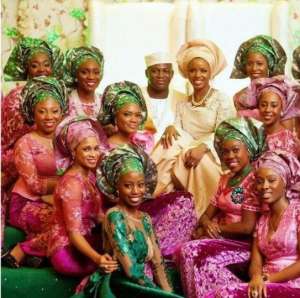
Marriage depending on where you are is the unity between a man and a woman. The unity makes the two families from the man’s side and that of the woman to be in unison. As a result there are different cultural aspects that have to be observed based on the part where you come from. In Africa as a continent, different countries and cultures have different things that they observe during the wedding ceremony. They make the wedding ceremonies to become memorable to both the parties involved.
AFRICAN WEDDING CULTURES
In Africa there are over 500 different cultures that are practiced during the wedding ceremonies. Here we are only going to discuss 3 from different cultures.
First we head up to West Africa specifically in Ghana. The Ghanaian wedding tradition are more or less similar to those of most Kenyan tribes. First the groom and his family goes to the brides house to officially have her hand in marriage in the company of well-wishers, friends and the family at large. It all starts with a ceremony called the knocking ceremony that takes place one to two weeks before the actual wedding. This is where the groom announces their wedding intentions to the bride’s parents. During the kokako (knocking ceremony) a spokesman for the groom’s family offers a drink to the bride’s family and if it is accepted, the visitors can now state the intentions of their visit. On the sat date, the grooms family and friends arrive early and sit on opposite sides to that of the bride. They offer the dowry one by one while it’s being checked that they brought everything offered. It’s during this that they can negotiate if they feel that what’s being asked is expensive. After they are considered a couple.
The next very intriguing is the Somali wedding. This has rules that are almost similar to those of the Muslim laws where they are allowed to marry up to four wives. These marriages are sometimes arranged when the bride is still an infant. The grooms parent offer the bride’s parents a small token as a sign that the two are sealed to be together. The joining is officiated by a sheikh or a Kathi. Here the groom gives the bride a dowry called the mehr. The mehr is anything stock related since mostly they own herds of cattle.
Heading down to the south we have a look at the Tswana marriage ceremony. They are generally from Botswana just as the name sounds. The groom takes a group of men and women that are equally represented in gender as his delegates. They have a ceremony daily very early in the morning. The bride carry the dowry called the labella on their heads and approach their village on their knees. The boy’s delegates approach the side representing the bride where several men are gathered and offer those gifts majorly whisky and a sheep that will be slaughtered for the occasion. The women in the delegation remain on their knees and the bride’s side call them enemies since they are snatching a member of their family. After negotiations of the dowry, the delegates are accommodated in the brides homestead and treated to a meal and refreshments. After which the groom has to provide a bed and a house so that the bride can be allowed to leave.
All the above traditions are just but a few of those that are practiced in Africa. The most common similarity is that there has to be a ceremony on the material day and on the day of handing out the dowry.
In summary the study about the African traditions is one of the most interesting topics that one can currently study. They are at times a little bit similar but in other occasions they differ. This is what makes them really amazing. We should also try to uphold our traditions.